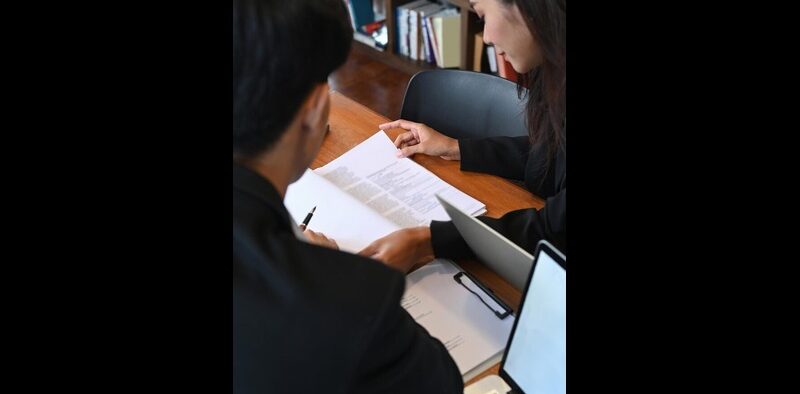CBSE To Revamp Legal Studies Syllabus In 2026
Share

The Central Board of Secondary Education (CBSE) is set to introduce a significant update to the Legal Studies syllabus for Classes XI and XII. This change aims to reflect recent legal reforms and align with the National Education Policy (NEP) 2020. The new syllabus will be implemented starting in the 2026-27 academic year and will incorporate important legislative and judicial changes in India’s legal landscape from the past decade.
Notable updates in the revised curriculum include legal developments related to the repeal of triple talaq, the decriminalization of homosexuality after the removal of Section 377 of the Indian Penal Code (IPC), and the abolition of the sedition law. These changes represent a clear move away from colonial-era laws toward a more progressive and rights-focused legal framework. They are essential for students who want to understand contemporary Indian law.
The new curriculum will also include three significant laws enacted in 2023-24: the Bhartiya Nyaya Sanhita (BNS), the Bhartiya Nagarik Suraksha Sanhita (BNSS), and the Bhartiya Sakshya Adhiniyam (BSA). These laws replace the long-standing IPC, the Code of Criminal Procedure (CrPC), and the Indian Evidence Act, respectively. By adding the BNS, BNSS, and BSA to the syllabus, CBSE aims to ensure that students grasp both the historical legal changes and the structure and implications of India’s updated criminal justice system.
The decision to update the Legal Studies syllabus was initially approved by the CBSE Curriculum Committee and later confirmed by the Governing Body in June 2025. Reports indicate that the Board plans to form an expert panel to guide the revisions and may work with a content development agency to create new textbooks. The goal is to provide an updated, student-friendly syllabus that is relevant to the current legal environment and adheres to effective educational practices.
Legal Studies has become increasingly popular among senior secondary students, particularly those interested in careers in law, public policy, governance, or related fields. The subject was introduced in Class XI in 2013 and Class XII in 2014, and it expanded in April 2024 with the approval of its addition to 29 more schools. It currently combines theoretical learning with project-based assignments, helping students develop analytical and research skills alongside an understanding of key legal concepts.
Currently, the Class XI syllabus covers foundational topics like constitutional values, jurisprudence, and the court system structure. Class XII explores business and general laws, contracts, torts, criminal law, and sustainable development. The last major revision occurred during the 2022-23 academic session when the syllabus was expanded to include laws like the Prevention of Sexual Harassment (POSH) Act 2013, the Right to Information Act, the Consumer Protection Act, and Intellectual Property Rights.
The upcoming syllabus update represents a more transformative step. By introducing new criminal laws and incorporating recent landmark judgments, CBSE aims to prepare students for a legal landscape that is both modern and responsive to changing societal values. Including the repeal of triple talaq will help students learn about the Muslim Women (Protection of Rights on Marriage) Act, 2019, which criminalized the practice of instant divorce by Muslim men. The removal of Section 377 will act as a case study in constitutional morality, human rights, and the judiciary’s role in protecting personal freedoms. Additionally, omitting the sedition law will provide students insight into dismantling colonial-era restrictions on free speech in favor of democratic freedoms.
The syllabus will also include important judicial interpretations, modern legal principles, and emerging areas of law. These components will give students a clearer view of how legislation evolves through both statutory reforms and judicial intervention. Furthermore, the updated curriculum is expected to emphasize comparative analysis, encouraging students to examine how similar legal issues are treated in various jurisdictions.
CBSE’s decision reflects a growing understanding of the need to connect school education with real-world legal changes. By providing students with current and accurate information about the nation’s laws, the Board hopes to develop a generation that is not only legally informed but also able to engage with issues of justice, governance, and rights. Integrating contemporary content into the classroom should make studying law more engaging, shifting from memorization to a more analytical and discussion-oriented approach.
With preparations already in progress and a clear timeline aimed at the 2026-27 academic year, CBSE’s initiative has been met with enthusiasm from educators, legal professionals, and students. As the new syllabus develops under expert guidance, it promises to make Legal Studies a vibrant subject that reflects the changing nature of law in India. This will ensure that senior secondary students graduate with a solid understanding of a legal system that is both historically rooted and prepared for the future.








